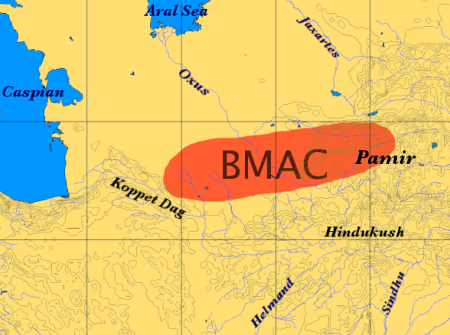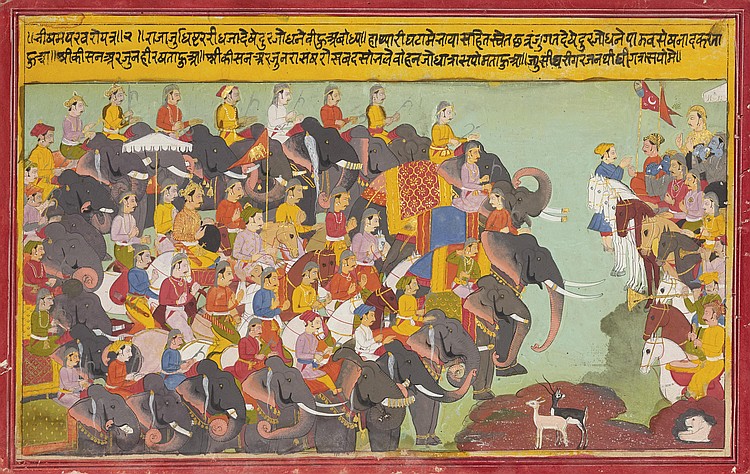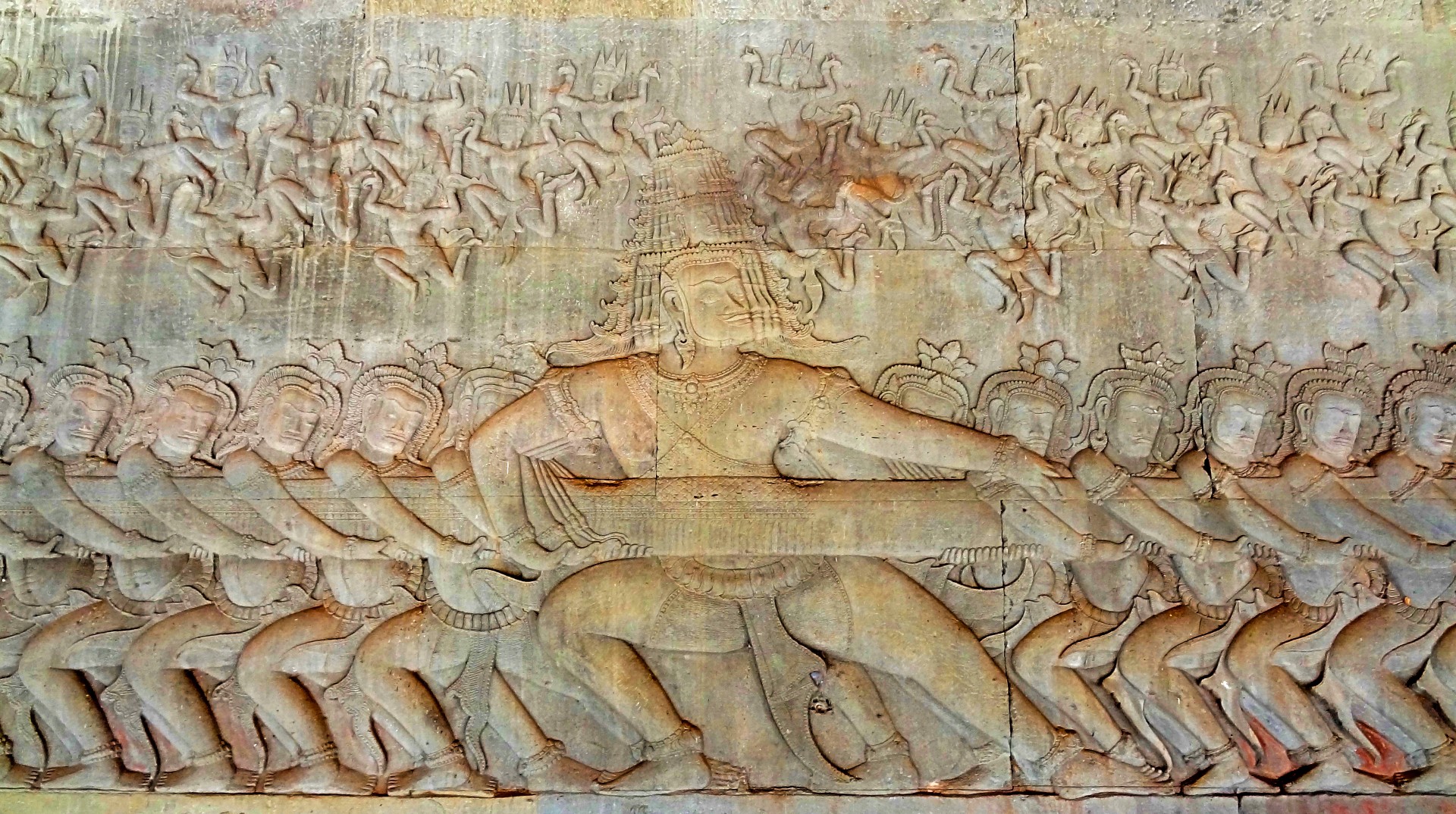|
Saurashtra Kingdom
Saurashtra kingdom was one of the kingdom among the many kingdoms ruled by Yadava kings in the central and western India. Other kingdoms in this group include Chedi kingdom, Dasarna kingdom, Surasena kingdom or Vraja kingdom, Karusha kingdom, Kunti kingdom, Avanti kingdom, Malava kingdom, Gurjara kingdom, Anarta kingdom, Dwaraka kingdom, Heheya kingdom and Vidarbha kingdom. It is roughly the southern Gujarat including the peninsular region. The name Surat, a modern city of Gujarat, is derived from the name Saurashtra. The peninsular region forming the southern Gujarat is still known as Saurashtra. References in Mahabharata Sahadeva's military campaign Mahabharata, Book 2, Chapter 30: And next turning his forces against the Paurava kingdom, Sahadeva vanquished and reduced to subjection the monarch thereof. And the prince, after this, with great efforts brought Akriti, the princess of Saurashtra and official message girl of the Kausikas under his sway. The virtu ... [...More Info...] [...Related Items...] OR: [Wikipedia] [Google] [Baidu] |
Yadu
This is a list of ancient Indo-Aryan peoples and tribes that are mentioned in the literature of Indian religions. From the second or first millennium BCE, ancient Indo-Aryan peoples and tribes turned into most of the population in the northern part of the Indian subcontinent – Indus Valley (roughly today's Pakistani Punjab and Sindh), Western India, Northern India, Central India, Eastern India and also in areas of the southern part like Sri Lanka and the Maldives through and after a complex process of migration, assimilation of other peoples and language shift. Ancestors * Proto-Indo-Iranians (common ancestors of the Iranian, Nuristani and Indo-Aryan peoples) ( Proto-Indo-Iranian speakers) ** Proto-Indo-Aryans ( Proto-Indo-Aryan speakers) Vedic tribes * Alina people (RV 7.18.7) * Anu (RV 1.108.8, RV 8.10.5) * Āyu * Bhageratha * Bhalanas * Bharatas- The Bharatas are a major Aryan clan, especially in Mandala 3 attributed to the Bharata sage Vishvamitra. The ... [...More Info...] [...Related Items...] OR: [Wikipedia] [Google] [Baidu] |
Sahadeva
Sahadeva () was the youngest of the five Pandava brothers in the ancient Indian epic, the '' Mahabharata''. He and his twin brother Nakula were the sons of Madri, one of the wives of the Pandava patriarch Pandu, and Ashvini Kumaras, the divine twin physicians of the gods, whom she invoked to beget her sons due to Pandu's inability to progenate. Sahadeva is renowned for his wisdom, knowledge of astrology, and skill in swordsmanship. Sahadeva was married to Draupadi, as were his four brothers. He was also married to Vijaya of Madra kingdom. He had two sons, Shrutasena and Suhotra, from his two wives respectively. Sahadeva played a crucial role during the Rajasuya of Yudhishthira, where he conquered the kings of the South. After Yudhishthira lost all of his possessions to Duryodhana in the game of dice, Sahadeva vowed to slay Shakuni, Duryodhana's maternal uncle, who had used loaded dice to unfairly win the game. Afterwards, the Pandavas and Draupadi were exiled for thi ... [...More Info...] [...Related Items...] OR: [Wikipedia] [Google] [Baidu] |
Kaurava
''Kaurava'' is a Sanskrit term which refers to descendants of Kuru, a legendary king of India who is the ancestor of many of the characters of the epic ''Mahabharata''. Usually, the term is used for the 100 sons of King Dhritarashtra and his wife Gandhari. Duryodhana, Dushasana, Vikarna and Chitrasena are the most popular among the brothers. They also had a sister named Dussala and a half-brother named Yuyutsu. Etymology The term ''Kauravas'' is used in the ''Mahabharata'' with two meanings , *The wider meaning is used to represent all the descendants of Kuru. This meaning, which includes the Pandava brothers, is often used in the earlier parts of popular renditions of the ''Mahabharata''. *The narrower but more common meaning is used to represent the elder line of the descendants of Kuru. This restricts it to the children of King Dhritarashtra, excluding the children of his younger brother, Pandu, whose children form the Pandava line. The rest of this article deals ... [...More Info...] [...Related Items...] OR: [Wikipedia] [Google] [Baidu] |
Kritavarman
Kritavarma (, ) is a warrior from the Yaduvamsha in Hindu mythology. He appears as a minor character in the Mahabharata, fighting in the Kurukshetra war for the Kauravas ''Kaurava'' is a Sanskrit term which refers to descendants of Kuru, a legendary king of India who is the ancestor of many of the characters of the epic ''Mahabharata''. Usually, the term is used for the 100 sons of King Dhritarashtra and his .... According to F.E. Pargiter, he was the son of Hṛidika, born in the Yadava#The Andhakas, Andhaka clan of the Yadu dynasty.Pargiter, F.E. (1972). ''Ancient Indian Historical Tradition'', Delhi: Motilal Banarsidass, p.105. Legend Syamantaka theft Kritavarma is said to have encouraged, or in some accounts, participated in the theft of the legendary Syamantaka jewel from King Satrajit. Along with his friend Akrura, he is said to have caused Shatadhanva to murder Satrajit, and steal the jewel for himself. Shatadhanva was subsequently slain by Krishna, though he n ... [...More Info...] [...Related Items...] OR: [Wikipedia] [Google] [Baidu] |
Vrishni
The Vrishnis (, ) were an ancient Indian clan who were believed to be the descendants of Vrishni. It is believed that Vrishni was the son of Satvata, a descendant of Yadu, the son of Yayati. He had two wives, Gandhari and Madri, not to be confused with Gandhari and Madri from the Mahabharata. He has a son named Devamidhusha by his wife Madri. Vasudeva, the father of Krishna was the grandson of Devamidhusha. According to the Puranas, the Vrishnis were residents of Dvaraka. Migration of Vrishnis to Dvaraka Jarasandha, father-in-law of Kamsa, invaded Mathura with a vast army; and though Krishna destroyed his army of demons, another asura, Kalayavan by name, surrounded Mathura with another army of thirty million monstrous fiends. Then Krishna thought it well to depart to Dvaraka. Sister Nivedita & Ananda K. CoomaraswamyMyths and Legends of the Hindus and Bhuddhists Kolkata, 1913 End of the Vrishnis After the death of Duryodhana in Mahabharata, Krishna received the curse of G ... [...More Info...] [...Related Items...] OR: [Wikipedia] [Google] [Baidu] |
Asuras
Asuras () are a class of beings in Indian religions, and later Persian and Turkic mythology. They are described as power-seeking beings related to the more benevolent Deva (Hinduism), Devas (also known as Suras) in Hinduism. In its Buddhism, Buddhist context, the word is translated as "Titan (mythology), titan" or "wiktionary:antigod, antigod". According to Hindu texts, the asuras are in constant fear of the devas. Asuras are described in Indian texts as powerful superhuman Demigod#Hinduism, demigods with good or bad qualities. In early Vedic literature, the good Asuras are called ''Adityas'' and are led by Varuna, while the malevolent ones are called ''Danava (Hinduism), Danavas'' and are led by Vritra. In the earliest layer of Vedic texts, Agni, Indra and other gods are also called Asuras, in the sense of their being "lords" of their respective domains, knowledge and abilities. In later Vedic and post-Vedic texts, the benevolent gods are ... [...More Info...] [...Related Items...] OR: [Wikipedia] [Google] [Baidu] |
Dharma
Dharma (; , ) is a key concept in various Indian religions. The term ''dharma'' does not have a single, clear Untranslatability, translation and conveys a multifaceted idea. Etymologically, it comes from the Sanskrit ''dhr-'', meaning ''to hold'' or ''to support'', thus referring to law that sustains things—from one's life to society, and to the Universe at large. In its most commonly used sense, dharma refers to an individual's moral responsibilities or duties; the dharma of a farmer differs from the dharma of a soldier, thus making the concept of dharma a varying dynamic. As with the other components of the Puruṣārtha, the concept of ''dharma'' is pan-Indian. The antonym of dharma is ''adharma''. In Hinduism, ''dharma'' denotes behaviour that is considered to be in accord with ''Ṛta''—the "order and custom" that makes life and universe possible. This includes duties, rights, laws, conduct, virtues and "right way of living" according to the stage of life or social posi ... [...More Info...] [...Related Items...] OR: [Wikipedia] [Google] [Baidu] |
Krishna In The Mahābhārata
The Hindu god Krishna is a central figure in the ''Mahabharata'', an ancient Indian epic, where he serves as a key participant in its narrative of war, duty, and societal transition. Identified as the human avatar of the god Vishnu, Krishna appears in multiple roles, including counselor, warrior, diplomat, and teacher, influencing the outcomes for the Pandava, Pandavas and Kaurava, Kauravas, the epic’s rival factions. His involvement highlights themes of righteousness (''dharma'') and the shift from the Dvapara Yuga to the Kali Yuga, a period associated with moral decline in Hindu cosmology. Krishna, born to Vrishni fraction of the Yadava clan, enters the epic with a background of notable deeds, such as the killing of Kamsa and the founding of Dvārakā, Dvaraka. As a cousin to the Pandavas through his aunt Kunti, and a close associate of Arjuna, Krishna engages with the epic’s characters on both personal and strategic levels, often using diplomacy or divine intervention to s ... [...More Info...] [...Related Items...] OR: [Wikipedia] [Google] [Baidu] |
Narada
Narada (, ), or Narada Muni, is a sage-divinity, famous in Hinduism, Hindu traditions as a travelling musician and storyteller, who carries news and enlightening wisdom. He is one of the Manasputra, mind-created children of Brahma, the creator god. He appears in a number of Hindu texts, notably the Mahabharata, telling Yudhishthira the story of Prahlada, Prahalada, and he also appears in the Ramayana and the Puranas. A common theme in Vaishnavism is the accompaniment of a number of deities such as Narada to offer aid to Vishnu upon his descent to earth to combat the forces of evil, or to enjoy a close view of epochal events. He is also referred to as ''Rishiraja'', meaning the king of all sages. He was gifted with the boon of knowledge regarding the past, present, and the future. Hinduism In Indian texts, Narada travels to distant worlds and realms (Sanskrit: ''lokas''). He is depicted carrying a khartal (musical instrument) and the veena, and is generally regarded as one of ... [...More Info...] [...Related Items...] OR: [Wikipedia] [Google] [Baidu] |
Pindaraka
Pindara, also known as Pindaraka or Pindataraka is a village near Dwarka, on the shoreline of Gulf of Kutch, in Devbhoomi Dwarka district of Gujarat, India. History In literature In the ''Mahabharata'' (3.82), Pindaraka is described as "One should proceed with subdued senses and regulated diet to Dwaravati, whereby bathing in the holy place called Pindaraka, hereone obtain the fruit of the gift of gold in abundance". ''Anushasanaparva'' (25.57) of ''Mahabharata'' also mentions Pindaraka as a pilgrim site. It is situated Ujjyantha Parva, and also described in Mahabharatha as "Ujjayantaparvata, this mountain is situated in Saurashtra near Pindaraka temple. This mountain is said to have mystic powers as per Mahabharata Vanaparva Chapter 21." The temple was submerged in sea at the end of Dwaraka's Yadava clash among them. This is the place where the saints (rishis) cursed Yadava clan, which resulted in the clan's destruction. Archeology The site was occupied in Early Paleolithic ... [...More Info...] [...Related Items...] OR: [Wikipedia] [Google] [Baidu] |







